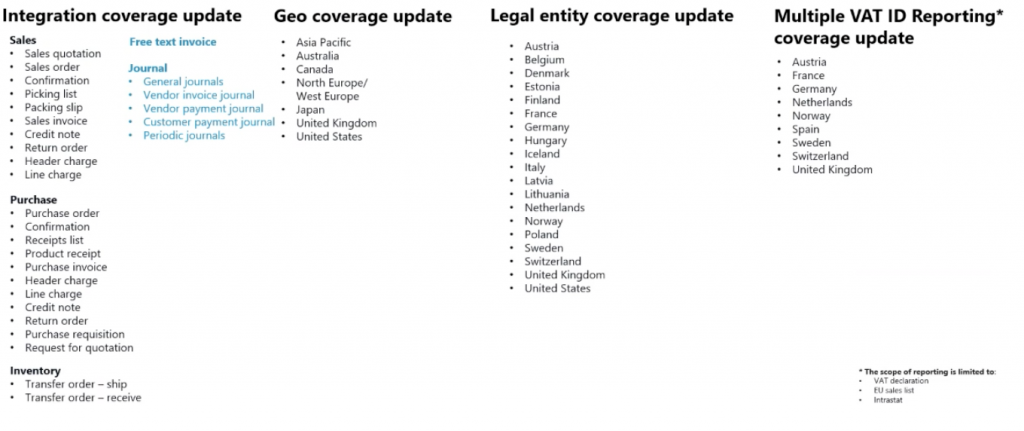Tax calculation service is a stand-alone microservice built on top of the Microsoft Azure platform that was launched in September last year. It focuses on the tax determination and calculator part of the entire lifecycle of tax management.
The service is more scalable and extendable – it is already integrated into multiple applications in the Dynamics family, such as Dynamics 365 Finance, Supply Chain Management, and many more. The business value of the tax calculation service is in its automation and standardization of your text determination and calculation across countries and regions.
This is a powerful tax engine that automatically determines the correct text rate or rates for your sales purchase or even general transactions. In addition, the service is a centralized configurable, low-code/no-code platform where you can design and define your own text condition.
The aim is to simplify teams’ work and reduce customization costs of compliance maintenance for businesses to meet local tax regulations. It is also fully compatible with the existing text engine in Dynamics Finance.

What’s New
Here is a quick intro of new functionalities to solve scenarios that cannot be well covered by the previous version:
- Cash Discount Parameters by Tax Jurisdiction – the feature allows the user to define tax jurisdiction for each transaction and then set the cash discount parameter differently for each jurisdiction. This helps the service to calculate the cash discount following different text regulations of different countries.
- Weight and Adjust Execution Sequence – it helps you to review the implied weight and adjust the execution sequence of the rules.
- Extended Tax Data Model – it provides more capability and flexibility to the user in designing the applicability rules.
- Override Sales Tax – with this feature, a user gets the ability to manually select the sales tax group or item in the transaction. Eventually, it will override the ones that are determined by the service.
User experience was also enhanced to provide better and smother experience to the MS users:
- Demo Feature – it is now available out-of-box in RCS, which can be imported to the legal entity DEMF directly, as part of its demo data – right after you activate the tax calculation service.
- New UI – with the new UI, the related configurations are now grouped together to provide a compact workspace with incremental functions and information. Thus, users can be focused more on configuration by only expanding fast tabs that are relevant to their scenarios.
- Import & Export – users can now easily use Excel for massive tax codes and applicability rules maintenance.



